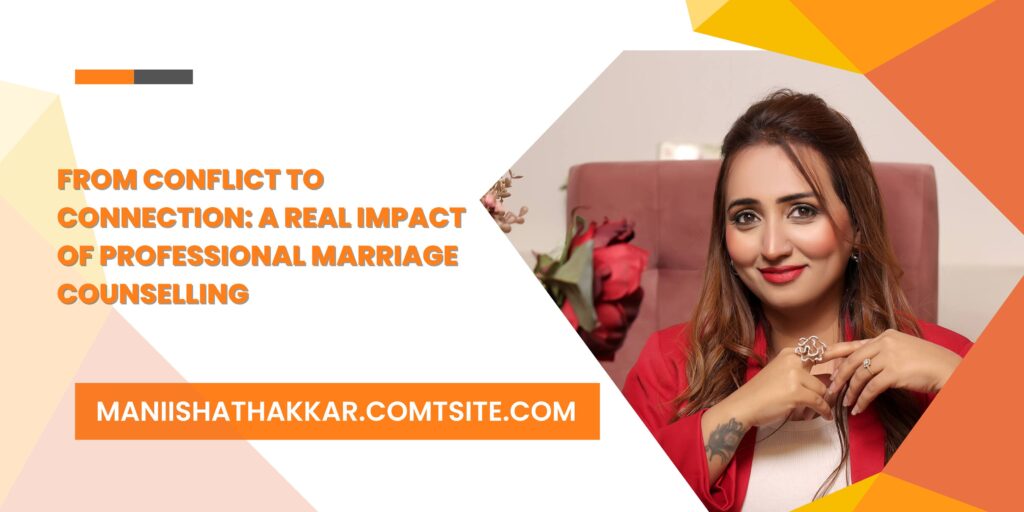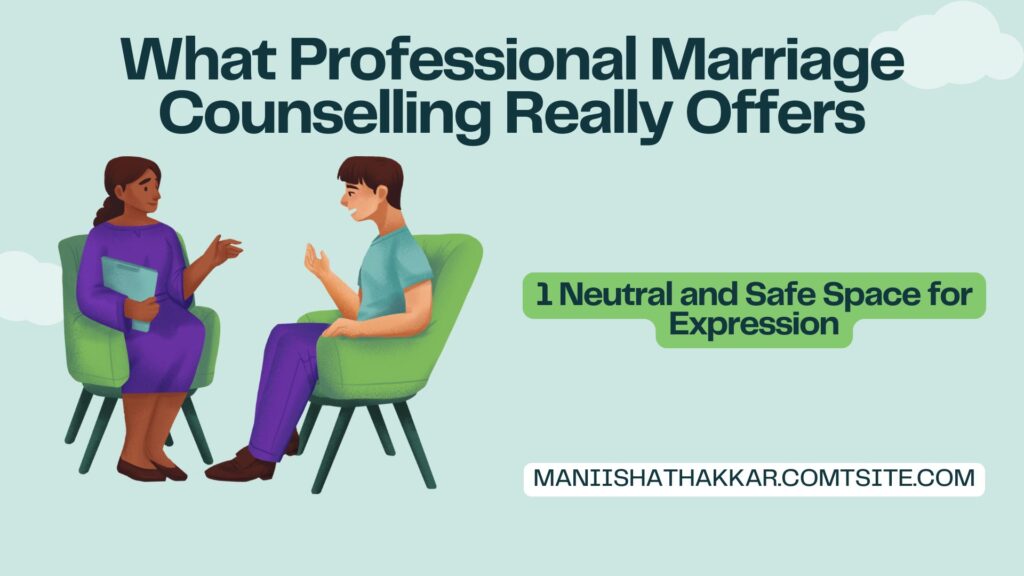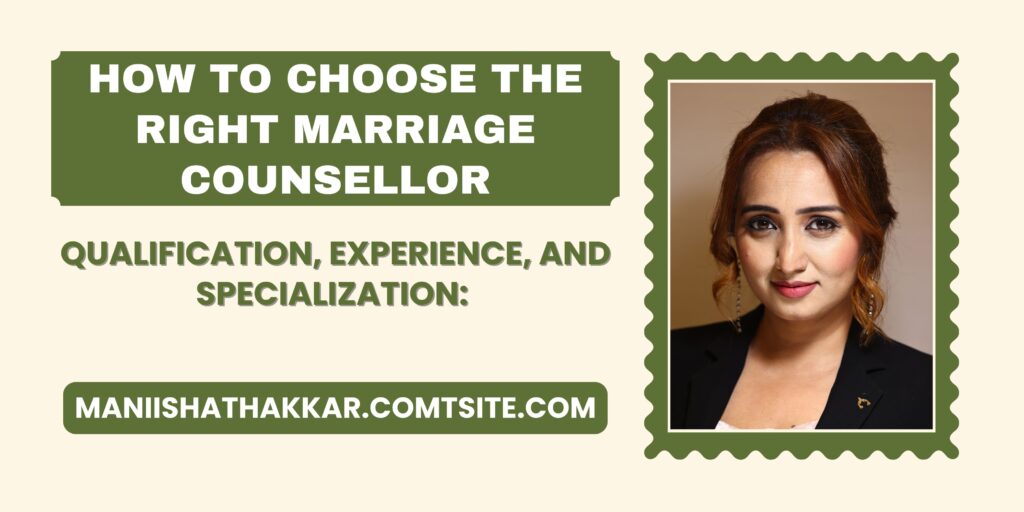
Modern relationships face pressures from careers, finances, and family responsibilities, often causing misunderstandings, repeated conflicts, and emotional distance. As couples struggle to find time and tools to nurture their bond, professional marriage counselling becomes increasingly essential—offering clarity, healing, and practical strategies to help partners move from constant conflict to meaningful, lasting connection.
Understanding the Real Roots of Marital Conflict
1. Breakdowns in Communication
Almost every marital complication stems from almost trifling misunderstandings that grow unnoticed into problems that last for long periods. Little disagreements, unspoken, or ignored frustrations, and unclear expectations are common contributors to emotional drift gradually forming between partners. Healthy verbal and emotional expression learning is thus vital for the partners to trust and even reconnect with each other. By gaining open communication skills in the form of feeling shared without indictment and listening with empathy-from-through the partners will create a reduction in conflict and affective deepening.
2. Old Matters that Have Not Been Resolved in the Past
Below the surface, past wrongs, betrayals, or silent expectations often continue to affect present-day behavior. Such unrelieved issues can cause resentment, a lot of arguments, or perhaps with vast emotional withdrawal from the partner. Professional counselors help people see the patterns hidden behind the scenes; thus, clearing up those events in the past that still have an impact on the relationship. In constructed conversation, the partners learn to heal, forgive, and base an emotional health foundation.
3. Stress, Duties, and Phases of Life
Certain everyday things, such as financial pressure, parenting responsibilities, or even career demands, can put a nosedive for even the strongest relationships. Life events may include such things as becoming new parents, changing jobs, or moving to different places-all of which are significant sources causing weakness in intimacy in the marriage. Marriage counseling would equip couples with the skills to weather the prevailing situation together, reorient themselves in their priorities, share the responsibilities better, and support partners. With professional help, couples could rebuild their bonds and reinforce their teamwork.
What Professional Marriage Counselling Really Offers

1. Neutral and Safe Space for Expression
Such spaces for marriage counselling are neutral and, among the many other benefits, are non-judgmental places for the partners to speak openly to the other. Calmly mediating, the counsellor ensures each person presents herself or himself for equal amounts of time, attention, and respect. A safe environment aids partners to resurrect those expressed feelings that in other situations they would hide and thereby foster deeper feelings of being heard and understood. When both partners feel validated, everything else becomes much less complicated-they can now resolve the conflicts and restore emotional closeness.
2. Evidence-Based Techniques
Professional counsellors are scientist practitioners who apply structured, evidence-based approaches such as cognitive-behavioural interventions, emotion-focused therapy, and skills training. These methods enable couples to recognize unworkable patterns of behavior, learn to manage their emotional reactions, and replace negativity with more positive interactions. Couples go through the process in an orderly manner, thereby alleviating pain in a short time and gaining empowerment to grow; otherwise, if they resisted going to counseling, such hope would not have existed. Thus, a long-term set of behavioral and emotional changes in the couple would be the target instead of a fleeting change that brings temporary relief.
3. Improved Communication Skills
Marriage counselling introduces the elements of active listening, empathy, and constructive conflict resolution as vital communication skills. Couples learn to express needs in as close to clear terms as possible without criticism and learn to remain understanding of one another instead of developing a defensive reply. Counsellors furnish partners with both exercises and cases to apply the skills of positive communication in their daily lives. This greatly reduces instances of misunderstanding and leads to wholesome conversation within a period.
4. Emotional Healing and Trust Building
Trust is easily eroded in marriage by conflicts, emotional distancing, or betrayal; counselling provides an avenue for partners to jointly heal these wounds by discussing their pain, encouraging openness, and restructuring their relationship boundaries. Through dialogues that are supportive and therapeutic mechanisms to create emotional safety, the partners develop trust again. This trust will be the healing factor upon which the couple’s relationship in the future is built, whereby fears and insecurities that might have arisen with time are reduced.
5. Strengthening Intimacy & Connection One of the threads that run through marriage counselling sessions is the repair of intimacy, whether it be emotional, physical, or even spiritual, and must be sought after with conflict resolution. Counsellors help partners come back together on the common values of love and friendship that brought them together in the first place. With the emotional barriers lifted from good coordination, couples can recapture the warmth and joy of their relationship. This reconnection will bond couples together and improve the existence of their marriage.
How to Choose the Right Marriage Counsellor

1. Qualification, Experience, and Specialization:
A therapist with a robust academic background such as a degree in psychology, counseling, or marital therapy has the requisite knowledge or research to perform his/her work well. Experience also counts as well, in as much as a seasoned therapist would have worked with an array of couples thus coming with experience from different patterns, emotional issues, and conflict styles into the therapy. The main consideration would be a forensic marriage or forensic couples counselor. They know how to help the couple expose some weaknesses in their communication and conflict, addressing it directly with the right measures to build repertoires for the better communication, conflict resolution, and stronger emotional bonds.
2. Comfort Approach, Compatibility
There could be both partners being attracted to the soothing, respectful, and emotionally supportive nature of the counselor. His/her approach may be gentle, structured, solution-based, or emotionally focused but it must be in agreement with what the couple requires and wants. Making an attempt at understanding; accepting each other achieves a remarkable leap forward. Partners will then work at a heightened level of sympathy in their joint consideration with regard to disagreement, recognition and values of positive changes, and anything that concern one another. These good feelings are the building blocks toward the development of a positive atmosphere in therapy, and hence better interventions for comfort and meaning.
3. Maintaining Confidentiality and Trust
Confidentiality has a great bearing on marriage counseling; hence couples need to say much about their feelings, conflicts, and past experiences without fear. The faithful counselor should take over such a sensitive situation under extreme confidence while creating a safer platform in which honesty and straightforwardness flow. Security bears together many hearts willing to share many ties, producing deeper emotional healing and quicker progress.
Conclusions
Marriage counselling creates space for honest communication, emotional healing, and a renewed understanding of each other. With guided support, couples can transform long-standing conflicts into deeper connection—learning to manage stress, rebuild trust, and strengthen their bond. Asking for help isn’t a sign of weakness but a commitment to growth. With professional guidance, partners can build a more intimate, respectful, and peaceful relationship. Taking that first step can open the door to a more beautiful life together.
